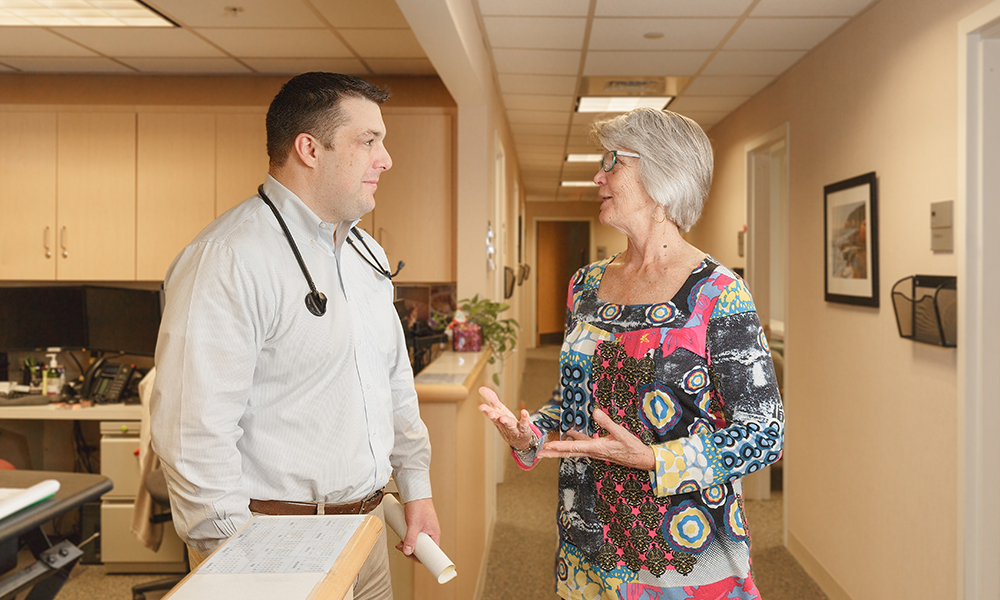Talk to your doctor about how you can lower your risk of colon cancer.
 Dr. Brian Haney is treating colon cancer for Kit Pfeiffer, of Whitefield, using immunotherapy.
Dr. Brian Haney is treating colon cancer for Kit Pfeiffer, of Whitefield, using immunotherapy.
Screening is the best defense against colon cancer...
Regular screening is one of the most powerful weapons against colon or rectal cancer (together, known as colorectal cancer).
Screening can find cancer early, when it's small and hasn't spread, which can give your doctor more treatment options. Screening can even prevent cancer, because it can find precancerous polyps and remove them on the spot before they become a problem.
...and there are more ways to get screened than ever.
A colonoscopy is still the most common type of screening, but is not the only option.
The following tests have the advantage of finding both colorectal polyps and cancer:
- Flexible sigmoidoscopy
- Colonoscopy
- Double-contrast barium enema (DCBE)
- CT colonography (virtual colonoscopy)
These tests mainly find cancer, but not polyps:
- Guaiac-based fecal occult blood test (gFOBT)
- Fecal immunochemical test (FIT)
- Stool DNA testing
Learn about the pros and cons of all of these options here or ask your doctor about when and how you should start getting regular colon cancer screenings.
Risk Factors for Colon Cancer
Researchers have found several risk factors that might increase a person's chance of developing colon cancer; others, like your family history, can't be changed.
Below are brief summaries of these risk factors; for complete information, click here, or talk to your doctor.
Risk factors you can change:
The links to colon cancer of diet, weight, and exercise are among the strongest for any type of cancer.
- Being overweight or obese
- Physical inactivity
- A diet that's high in red meats (such as beef, pork, lamb, or liver) and processed meats (like hot dogs and some luncheon meats)
- Smoking
- Heavy alcohol use
Risk factors you can't change:
- Personal or family history of colon cancer or polyps
- A personal history of inflammatory bowel disease
- Inherited syndromes
About 5% of people who develop colorectal cancer have inherited gene changes (mutations) that cause family cancer syndromes and can lead to them getting the disease.
Talk to your NECS doctor about whether genetic counseling services are appropriate for you.
Did you know?
Colon cancer is the second leading killer among all cancers that affect both men and women. It's serious, so don't wait for symptoms to get screened—especially if you're age 50 or older, and even if you have no family history of cancer!


